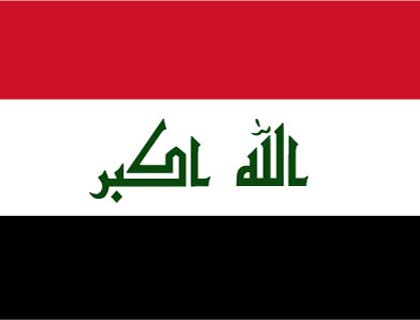Last month, in a spectacular move, al-Qaeda linked militants overruled soldiers in Anbar province. Fallujah and part of Ramadi cities fell to hands of armed opposition and sparked worries in Baghdad and also among its international supporters. The capture of the cities dealt casualties to both soldiers as well as civilians.
Soon after the incident, Mr. Prime Minister, Nouri-al-Maliki urged residents and tribes of Fallujah to “expel” Al Qaeda militants from this western city to avoid an all-out battle. He also urged Iraqi troops to avoid targeting Fallujah’s residential areas. Ostensibly, it was a wrong assumption that powerful Sunni tribes could or even have the will to expel them. Despite abhorrence from al-Qaeda linked armed groups who defame the entire community, many tribes do not see a Shiite government as good alternative. In some cases, some armed groups fought with al-Qaeda militants and Iraqi soldiers at the same time because they blame the present regime of doing systematic discrimination against minority Sunnis.
Now seemingly, Mr. Prime Minister wants to win back the hearts and minds of residents in majority Sunni populated areas. He paid visit On Saturday to provincial capital city, Ramadi where militants have held territory for weeks and announced over $83 million in construction funds and training for allied tribal militia. It was his first trip to Anbar province since militants and anti-government tribesmen seized control of parts of Ramadi and all of Fallujah to its east at the start of the year.
Ali Mussavi, the spokesman of Mr. Al-Maliki said that the Premier met with provincial officials and leaders of powerful local tribes. “We came to confirm our support to our people and our tribes in Anbar,” he quoted Maliki as saying in a speech.
Meanwhile, the Iraqi troops backed by helicopter gunships regained ground in the northern town of Sulaiman Pek on Friday, a day after parts of it were overrun by Sunni Islamist insurgents. Based on reports in the battle around 12 militants were killed by troops. "The army is making good progress in the town," Talib Mohammad the mayor of the city said.
But seemingly moving ahead is highly challenging for the government. Backed by air and ground military power of the United States, Prime Minister Nouri-al-Maliki could eradicate both Shiite illegal armed group led by Moqtada-al-Sadr and also Sunni armed militants. To some point it is the first time that is he going alone to suppress militants who now openly control part of the country.
Due to facial similarity and also lack of intelligence, it would highly be challenging to differentiate among militants and common residents. If the sympathy grows higher and government lacks getting trust of residents, militants can easily appear and shot down soldiers and blend once again among civilians. More than a month after Fallujah fell under full control of militants, government has remained still and obsessed how to deal, fearing high level of civilians and military casualties. The city is surrounded by the army but except warnings to lay down arms no move has been held.
The recent wave of chaos commenced late December, when Prime Minister Nouri al-Maliki ordered the removal of protest camps hoisted by government opposition who blame the Iraqi government of systematic sectarian discrimination. Mr. Prime Minister said that camps were changed to hideouts for members of terrorist groups. Sunni oppositions harshly reacted to decision of central government. In order to relieve his opposition, Mr. Nouri al-Maliki ordered Iraqi soldiers to retreat from provincial capital city, Ramadi. The move could not calm the situation down rather further added to confusion. Right after military retreat, militants attacked police headquarters, and plundered arms and released prisoners.
Despite warnings, there is no sign that Fallujah residents cooperate with government. The Al-Qaeda linked militants are welcomed in Fallujah because residents consider them as fellow Sunni. So, to force them out, the government is in need of close cooperation of residents who may avoid or support against government struggle.
Seemingly, militants are strong enough that they decided to overrule the city. They are confident that they can keep the city under control or deal serious blow to Iraqi soldiers. Otherwise, they would have continued fighting government through devising explosives and making suicide bombings. It was so hard for them to overrule security forces without cooperation of armed residents. If the government, as threatened to, starts an all-out war against militants who control the city, civilian casualties is inevitable. So, if the militants use people as human shield or if people decide to continue supporting them, the government should deploy larger number of soldiers, which certainly will raise civilian casualties. Generally Sunni suspect government of exerting discrimination against them. They feel marginalized and want to have larger independence similar to what Kurds have in North part of the country. Civilian casualties may be interpreted in this context and finally end up to a thorough sectarian struggle against central government. In such scenario, the prospective of Iraq looks far grim than the current casualties caused by suicide bombings.
Moreover, the government understands that this time there would be no American might if the soldiers got challenged. Despite its secrete and continuous request, Baghdad has not received modern helicopters which can play vital role in urban battle. It can precisely hit the hideouts of militants and avoid civilian casualties. But one thing should be considered in advance that without getting modern military equipment, Baghdad may continue getting obsessed or its authority would be challenged in certain parts of the country.

